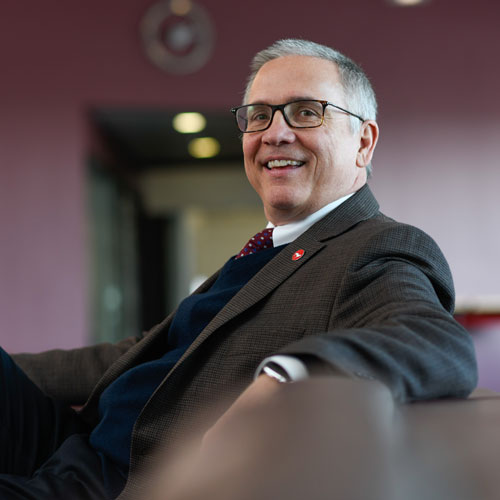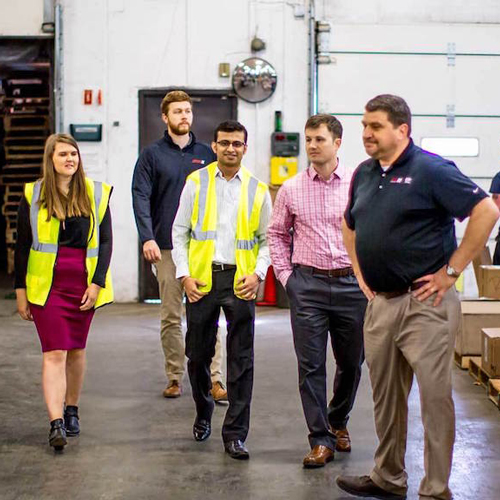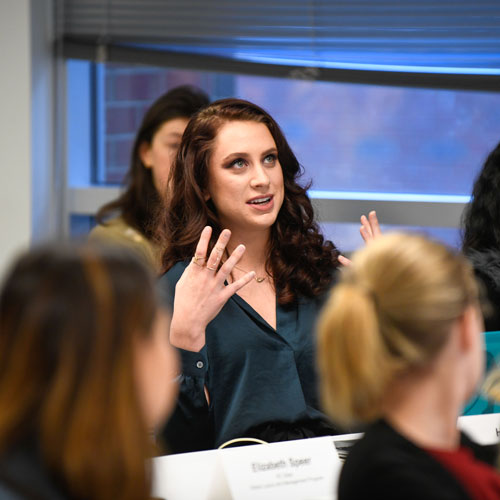
WalletHub | January 22, 2019
“Other than missing out on credit card miles or points, I think paying up front in cash at least suggests that the purchase has been planned and saved for.”
Joseph Brazel, Jenkins Distinguished Professor of Accounting and University Faculty Scholar, on the benefits of cash versus credit cards for large purchases made over the holidays.
Wall Street Journal | January 9, 2019
“Companies that have identified AI as a potential risk can take several steps to reduce their exposure. These include expanding research and development efforts into AI, acquiring the technology through mergers and acquisitions or partnerships, and examining how AI is affecting other industries to study instances of successful implementation.”
Mark Beasley, Deloitte Professor of Enterprise Risk Management and director, ERM Initiative, on the benefits of public companies listing artificial intelligence (AI) in the risk section of their annual reports filed with the Security and Exchange Commission (SEC).
MSN | January 4, 2019
“Due to factors like poor training, it is possible that impurities were introduced through chemical reactions and so forth…”
Rob Handfield, Bank of America Distinguished Professor of Supply Chain Management and executive director of the Supply Chain Resource Cooperative, on the role of the global supply chain on a major blood pressure medication recall.
Journal of Accountancy | January 2019
“I don’t think today’s students want anything different than what I wanted when I graduated from the University of Richmond in 1975 — to make a difference. What I do perceive as different is how they will make that difference. The profession needs to leverage current and emerging technologies to enhance students’ professional and personal lives. The good news is the students are up to the challenge.”
Scott Showalter, professor of practice and director of the Jenkins Master of Accounting program, was interviewed for The Last Word column.
WalletHub | December 12, 2018
“The bottom line is that while there will be some winners from tariffs, the overall effect on the economy is negative. Tariffs are a tax, and furthermore, the presence of a trade war creates uncertainty for companies. It’s hard to plan when you don’t know what the cost of materials is going to be and when you don’t know whether your exports are going to be competitive.”
Richard Warr, interim associate dean for faculty and academic affairs, and professor of finance, provided his expertise to WalletHub in response to the question, “How will the recent trade tariffs impact stock prices in the short and long run?”
Luxury Daily | December 11, 2018
“Both marketing surveys and actual luxury consumer spending have been up in many elements of the luxury sector in the last few quarters, and some data suggest that British luxury consumers are not nearly as concerned as non-luxury consumers right now about the costs of goods and services. Uncertainty about political and economic policies is never good for any international business, however, luxury sector or not.”
John Kuzenski, teaching assistant professor in the Department of Management, Innovation & Entrepreneurship, discusses the impact of uncertainty around a Brexit deal on the luxury goods industry.
Wall Street Journal | December 5, 2018
“Large companies that have long histories and extensive operations could find it particularly difficult to adapt quickly to competition posed by younger companies that digitize products and services or use technology to operate more efficiently.”
Mark Beasley, Deloitte Professor of Enterprise Risk Management and director, ERM Initiative, on the prediction that digital transformation will be the top risk for companies in 2019.
Web MD | November 19, 2018
“As pharmaceutical companies have started to offshore, they’re getting more quality issues, more product recalls. It’s definitely a trend we’re seeing. ”
Rob Handfield, Bank of America Distinguished Professor of Supply Chain Management and executive director of the Supply Chain Resource Cooperative, on the impact of drugs recalls on drug supply chains.
Wallet Hub | November 13, 2018
“There has been a significant increase in personal savings and a decrease in credit card debt during this time. Credit card companies are trying to attract more apps with promos but even that has slowed with some concern that moving into subprime group, slowing/flattening economy could be problematic.”
Ira Weiss, professor of the Department of Management, Innovation, and Entrepreneurship, contributed to an analysis of American consumers’ spending habits during the holiday season.
WRAL Tech Wire | October 22, 2018
“Now that we have these data and can see the patterns emerge, we can explore possible reasons for what we are experiencing. We don’t know yet whether a second half of the year decline is a negative sign or just an artifact of the ventures here in our area.”
Lewis Sheats, associate professor of practice, assistant vice provost for entrepreneurship, and executive director, NC State Entrepreneurship Clinic, addressed the reported continuous decline of optimism among Triangle entrepreneurs.
Accounting Today | October 24, 2018
“Because many traditional clerical tasks will be subsumed by technology, professionals will provide more critical thinking and judgment about the information produced. This change will be apparent and attract new entrants to the profession.”
Scott Showalter, professor of practice and director of the Jenkins Master of Accounting program, shed light on the potential outcomes of the technological advances in accounting.
Morning Star | October 10, 2018
“Losing millions because of this issue doesn’t mean that much for a large company with annual revenue in the billions, but it does add up to being a significant overall pain for Corporate America. ”
Andrew Schmidt, associate professor of accounting, on the potential impact of a significant corporate tax provision that could cost Corporate America around $700 million.














View Comments 0